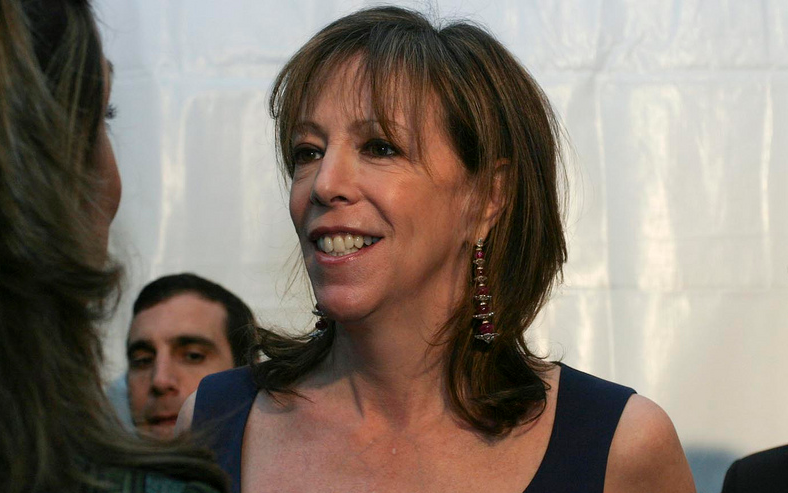This year’s Women in Film Crystal Award for Excellence in Film went to eight female producers: Denise Di Novi, Lianne Halfon, Lynda Obst, Jane Rosenthal, Paula Wagner, Lucy Fisher, Lauren Shuler Donner, and Paula Weinstein.
“We are on a mission to change the gender imbalance that is endemic to the entertainment industry, and these women we’re honoring are all catalysts for that change,” said WIF Los Angeles president Cathy Schulman.
In anticipation of the event, which was held on June 15, The Hollywood Reporter sat down with the eight powerful women and asked about sexism in the industry, what it’s really like being a female producer, and more. Here are some highlights:
THR asked, “Was there a time when you felt like you were treated differently than a male producer?”
“When we made ‘Heathers,’ the bond company said because I was a woman producer and my line producer was female, we needed a male on production,” said Di Novi. “It was a long time ago, and thankfully that wouldn’t happen now. Now it’s more the assumption that women don’t do action or special effects.”
“After the success of ‘Gremlins,’ my first big hit as an executive, when our Japanese partners arrived to thank us, they shook the hand of everyone in the room but me,” Fisher added.
“Often when I am introduced to the owners of a location where we are shooting, I can see the look of surprise,” Halfon said. “‘You don’t look like a producer.’ People think a producer is a guy in an expensive suit and Italian loafers sitting in a director’s chair on the phone.”
“Obnoxious, inappropriate sexual comments were made [one time]. I didn’t sue for sexual harassment,” Rosenthal shared.
THR asked, “What advice would you give to a young person aspiring to be a producer?”
Fisher said bluntly, “Go into television.”
Donner suggested, “Believe in yourself and your ideas. Keep a sense of humor.” Obst added “Don’t take things personally.”
Weinstein also got blunt, saying, “Don’t do it … unless you absolutely love what you’re devoting yourself to and know the stories you want to tell.”
Halfon added, “You have to be relentless. Flexibility is overrated. Listening is not.” While Wagner said, “Have the soul of an artist, a steel-trap mind that focuses the macro and the micro simultaneously and the skin of Teflon.”
“What’s it really going to take to see more women in power in Hollywood?” THR wondered.
Donner assertively declared, “They are in power.”
Obst went into more detail, saying, “A gigantic series of hits for the female international audience including the preteen ‘Frozen’/’Pitch Perfect’ audience that’s growing worldwide and we are ceding to animation. Once women take this audience and make it theirs and show how valuable it is to the business, that will help. Also, when we keep succeeding and don’t drop out from exhaustion.”
Di Novi added, “What I’m starting to see is a strong commitment on the part of studios and networks to make the numbers more equitable. They are finally acknowledging that the statistics are crazy. Taking steps to hire more women writers and directors and people of color needs to be intentional and a mandate, not an accident when it happens.”
“I think its going to take much more work — and it has to be done by women,” Halfon said. “Women my age (I’m 62) are often loath to discuss sexism, as though it in some way discredits their success. But the sexism (or, maybe gender bias is more appropriate) is so pervasive. In a business that is already deeply competitive and hierarchical, it’s hard to address. Successful women who have made it into the club don’t want to abdicate their membership by a complaint. But terming it a complaint or criticism makes it seem like a small adjustment is needed. And that’s not so — it is such sweeping change that is needed. But it needs almost a Title IX approach. We need our own Patsy Mink.”
For the entire interview, head over to The Hollywood Reporter.







